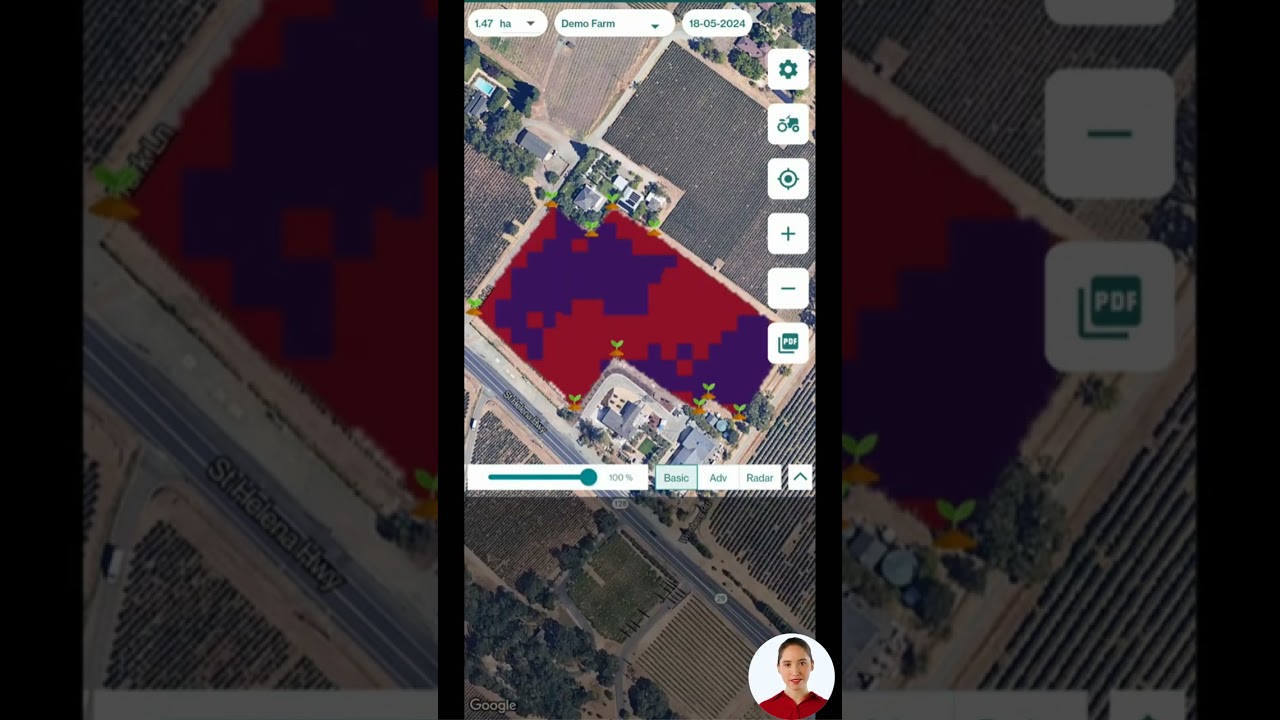Revolutionizing Urban Health: Chicago and New York’s Innovative Strategies for Food Security and Community Empowerment
“Chicago and New York’s innovative health strategies aim to close a life expectancy gap of up to 30 years between neighboring areas.”
In the evolving landscape of public health, we are witnessing a paradigm shift in how we approach community wellbeing and health equity. The social determinants of health have emerged as critical factors influencing the overall health outcomes of urban populations. As we delve into this comprehensive exploration of innovative strategies addressing urban health disparities and food insecurity solutions across major US cities, we’ll uncover how technological innovation and community empowerment are reshaping the future of public health.
Understanding the Social Determinants of Health
Recent research has underscored an important concept in public health: the conditions and environments in which individuals are born, live, work, learn, and age significantly influence their overall health and life expectancy. This “social determinants of health” paradigm suggests that factors such as socioeconomic status, education, and accessibility to nutritious food can be more telling indicators of health outcomes than genetic predispositions.
The stark reality is that in urban settings across the United States, merely traveling a few miles can lead to markedly different life expectancies for residents. This necessitates a multifaceted approach to health equity and wellbeing, one that addresses not just medical care but the broader social and economic factors that shape our health.

The Grubhub Community Fund’s $2 Million Grant
In response to these disparities, the Grubhub Community Fund has generously contributed a $2 million grant to the American Heart Association’s Social Impact Funds. This initiative is primarily aimed at tackling issues surrounding food insecurity, fostering technological innovation, and bolstering economic resilience in metropolitan areas like New York City and Chicago.
The collaboration between Grubhub and the American Heart Association illustrates a concerted effort to address some of the pressing health challenges faced by many communities today. This grant represents an infusion of essential resources that can help bridge critical gaps in health care access and food security.
Empowering Communities Through Innovative Solutions
Regina Benjamin, the chair of the Social Impact Funds Impact Investment Committee and former U.S. Surgeon General, elaborates on this mission, emphasizing how such support empowers communities to transcend barriers that inhibit equitable healthcare and socioeconomic equality. The notion that philanthropic efforts can be transformed into actionable change is a powerful message that resonates with stakeholders invested in public health.
The American Heart Association Social Impact Funds aim to allocate this new funding to a maximum of twelve organizations and entrepreneurs who are leading impactful initiatives in Chicago and New York City. By utilizing a proprietary sourcing and performance management process, the Fund will focus on amplifying efforts that contribute to improving health equity.
Innovative Platforms Addressing Urban Health Challenges
Among the organizations highlighted for support, several stand out for their innovative approaches to addressing urban health disparities:
- CareYaya: A North Carolina-based marketplace designed to connect families with students in pre-health programs, addressing the urgent need for affordable and flexible in-home care.
- Farm Generations Corporation: Located in New York, this organization plays a vital role in promoting agricultural sustainability while ensuring food access through a farmer-owned cooperative model.
- Nectar: Chicago’s Nectar drives the narrative of innovation by blending food security with health outcomes, providing access to food as medicine initiatives.
- RiseKit: Also based in Chicago, RiseKit takes a unique approach by aiming to empower underrepresented talent through job training programs and community-based organizations.
“Community health programs and sustainable food access initiatives are fueled by a multi-million dollar grant targeting urban health disparities.”
Technological Innovation in Healthcare and Food Security
The role of technological innovation in addressing urban health challenges cannot be overstated. From platforms connecting caregivers with families to e-commerce solutions enhancing food access, technology is at the forefront of these innovative public health strategies.
For instance, CareYaya’s platform not only addresses the caregiver shortage but also provides valuable experience for pre-health students. Similarly, Farm Generations Corporation’s GrownBy platform leverages technology to connect consumers directly with farmers, enhancing food security while supporting local agriculture.
In the realm of agricultural technology, platforms like Farmonaut are revolutionizing farm management through satellite-based solutions. While not directly involved in the initiatives mentioned, such technologies exemplify how innovation can contribute to sustainable food production and, by extension, urban food security.
Economic Empowerment as a Path to Health Equity
RiseKit’s approach underscores the intricate connection between economic opportunity and health outcomes. By facilitating job training and employment connections for underrepresented communities, RiseKit addresses one of the fundamental social determinants of health: economic stability.
This holistic approach to public health recognizes that improving economic outcomes for marginalized populations is a crucial step toward achieving health equity. It reinforces the view that economic stability is a fundamental pillar of community health.
Comparative Analysis of Urban Health Initiatives
| City | Health Initiative | Target Population | Technology Integration | Primary Focus Area |
|---|---|---|---|---|
| Chicago | Nectar | General population, focus on low-income | Food as medicine platform | Nutrition and Health Management |
| Chicago | RiseKit | Underrepresented communities | Job training software platform | Economic Empowerment |
| New York | Farm Generations Corporation | Farmers and consumers | E-commerce platform (GrownBy) | Sustainable Food Access |
| North Carolina (Expanding to NY & Chicago) | CareYaya | Families needing care, pre-health students | Caregiver matching platform | Affordable In-Home Care |
The Role of Public-Private Partnerships
The collaboration between Grubhub and the American Heart Association marks a significant milestone in a shared vision to promote food security and enhance technological capacity in the nonprofit space. Through funding and strategic partnerships, these initiatives aim to manifest real, positive changes in the communities they serve, fostering environments where health equity is not just envisioned but actively pursued.
Such partnerships demonstrate the potential for corporate social responsibility to drive meaningful change in public health. By aligning corporate resources with nonprofit expertise and community needs, these collaborations can address complex health challenges more effectively than any single entity could alone.

Innovative Approaches to Food Security
Food security emerges as a central theme in many of these innovative public health strategies. From Farm Generations Corporation’s direct-to-consumer model to Nectar’s food as medicine approach, these initiatives recognize the crucial role of nutrition in overall health outcomes.
These efforts go beyond simply providing food; they aim to create sustainable systems that empower communities to access healthy, nutritious food consistently. By integrating technology, community engagement, and sustainable agricultural practices, these programs offer promising models for addressing food insecurity in urban environments.
The Intersection of Health and Economic Resilience
The initiatives supported by the Social Impact Funds highlight the intricate connection between health outcomes and economic resilience. RiseKit’s focus on job training and employment opportunities for underrepresented communities directly addresses one of the key social determinants of health: economic stability.
By improving access to employment and career advancement opportunities, these programs contribute to building more resilient communities. This approach recognizes that health equity cannot be achieved without addressing the underlying economic disparities that often lead to health inequities.
Technological Innovation as a Catalyst for Change
Throughout these initiatives, we see technology playing a crucial role in addressing urban health challenges. From CareYaya’s platform connecting caregivers with families to Farm Generations Corporation’s e-commerce solution for sustainable food access, technology serves as a powerful tool for innovation in public health.
These technological solutions not only improve efficiency and accessibility but also enable data-driven decision-making in public health interventions. By leveraging data and analytics, organizations can better target their efforts and measure their impact, leading to more effective and sustainable health equity initiatives.
Community-Centered Approaches to Health Equity
A key theme that emerges across these initiatives is the focus on community-centered approaches. By involving community members in the design and implementation of health interventions, these programs ensure that solutions are tailored to the specific needs and contexts of the communities they serve.
This approach not only improves the effectiveness of health interventions but also builds community capacity and empowerment. By recognizing and leveraging community assets and knowledge, these initiatives create more sustainable and impactful solutions to urban health challenges.
The Future of Urban Health: Challenges and Opportunities
As we look to the future of urban health, several key challenges and opportunities emerge:
- Scaling Successful Models: While these initiatives show promise, scaling them to reach more communities remains a challenge. Finding ways to replicate and adapt successful models across different urban contexts will be crucial.
- Addressing Root Causes: Continued focus on addressing the root causes of health inequities, including systemic racism and economic disparities, is essential for long-term progress in urban health.
- Leveraging Data and Technology: As technology continues to advance, there are opportunities to leverage big data, artificial intelligence, and other emerging technologies to create more targeted and effective health interventions.
- Building Sustainable Partnerships: The success of these initiatives highlights the importance of strong partnerships between public, private, and nonprofit sectors. Nurturing and expanding these partnerships will be key to addressing complex urban health challenges.
Conclusion: A New Paradigm for Urban Health
The innovative strategies being implemented in Chicago and New York represent a new paradigm in addressing urban health disparities. By recognizing the complex interplay of social, economic, and environmental factors that influence health outcomes, these initiatives offer a more holistic and effective approach to improving community wellbeing.
As we move forward, it’s clear that addressing urban health challenges will require continued innovation, collaboration, and community engagement. The efforts highlighted here provide valuable models and insights for other cities and communities looking to tackle similar health equity issues.
By investing in food security, economic empowerment, and innovative healthcare solutions, we can work towards closing the health gaps that exist within our cities and create more equitable, healthy communities for all.
FAQ Section
Q: What are social determinants of health?
A: Social determinants of health are the conditions in which people are born, grow, live, work, and age. These circumstances are shaped by the distribution of money, power, and resources at global, national, and local levels.
Q: How does food insecurity impact health outcomes?
A: Food insecurity can lead to poor nutrition, increased stress, and higher risks of chronic diseases. It can also exacerbate existing health conditions and create barriers to healthcare access.
Q: What role does technology play in addressing urban health disparities?
A: Technology plays a crucial role by improving access to healthcare services, facilitating data-driven decision-making, and enabling innovative solutions for food security and economic empowerment.
Q: How can individuals support health equity initiatives in their communities?
A: Individuals can support health equity initiatives by volunteering with local organizations, advocating for policies that address social determinants of health, and supporting businesses that prioritize community health and sustainability.
Q: What is the significance of public-private partnerships in addressing urban health challenges?
A: Public-private partnerships combine the resources and expertise of different sectors to create more comprehensive and sustainable solutions to complex urban health challenges.
Earn With Farmonaut: Affiliate Program
Earn 20% recurring commission with Farmonaut’s affiliate program by sharing your promo code and helping farmers save 10%. Onboard 10 Elite farmers monthly to earn a minimum of $148,000 annually—start now and grow your income!
For developers interested in integrating satellite and weather data into their own systems, check out the Farmonaut API and the API Developer Docs.




















